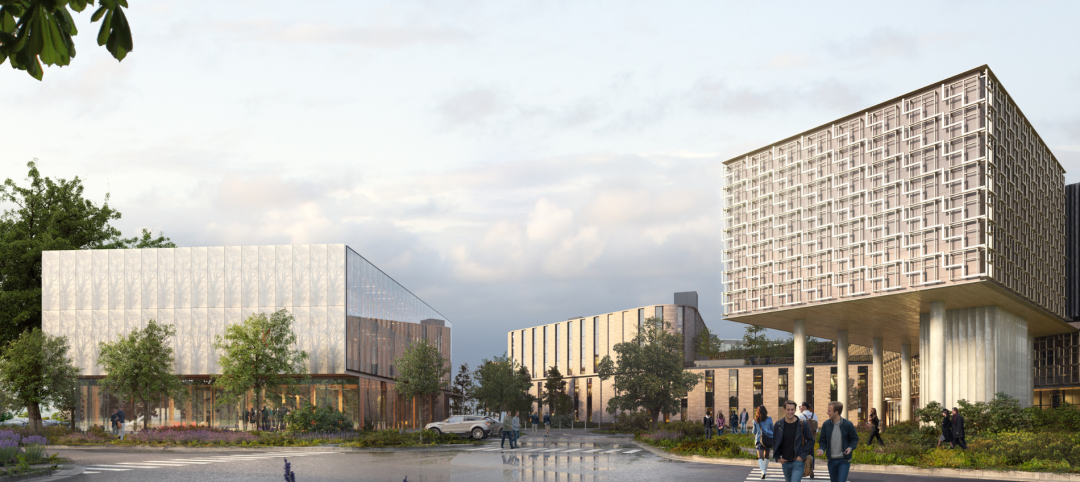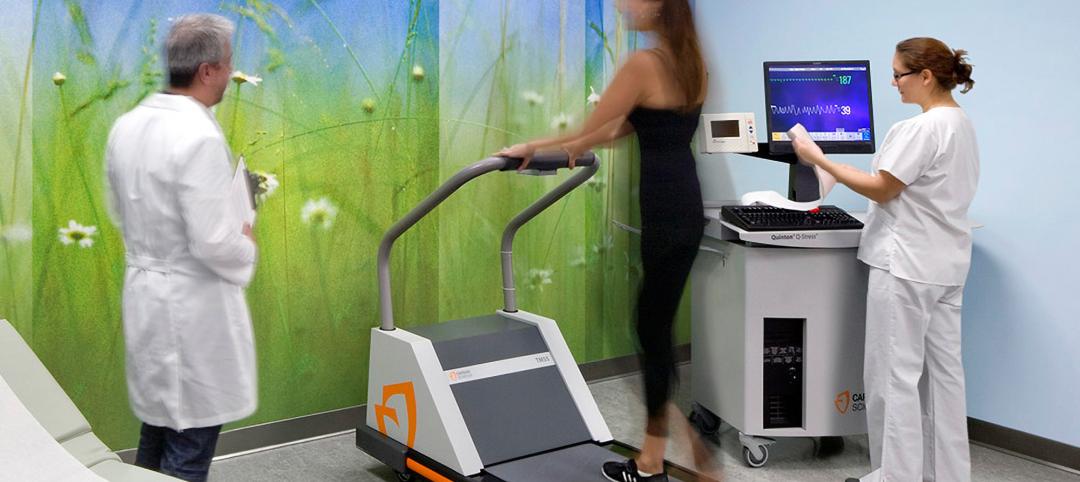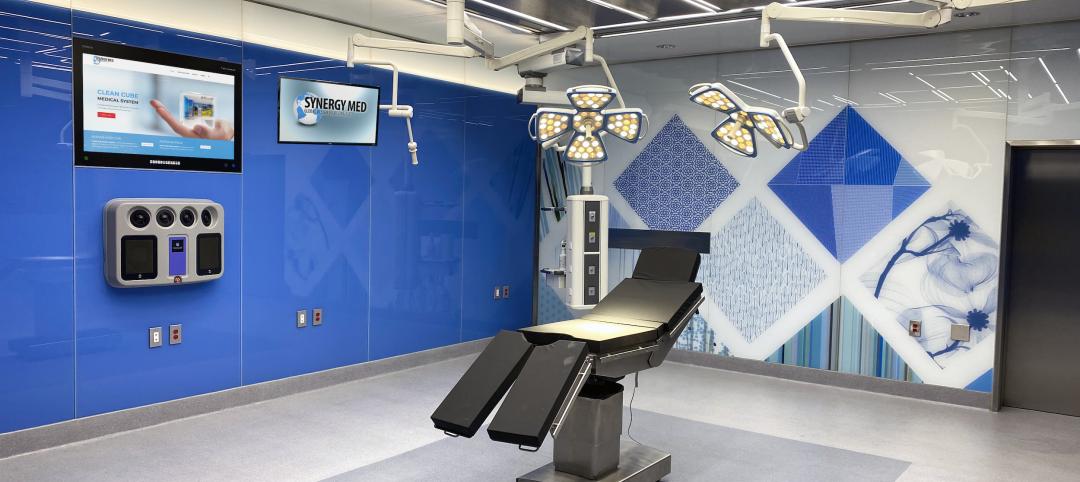Last December, the Civilian Board of Contract Appeals, a tribunal within the General Services Administration, found that the Department of Veterans Affairs (VA) was in material breach of a contract with Kiewit-Turner—a joint venture between Kiewit Building Group and Turner Construction—on the massive Denver VA Medical Center project in Aurora, Colo.
That project was already years behind schedule and hundreds of millions of dollars over budget. Upon that ruling, Kiewit-Turner—which has been on this project since 2010, when it broke ground—stopped work on that project, which at the time was somewhere between 40% and 60% complete, according to the Denver Business Journal. Work resumed just before Christmas only after VA and Kiewit-Turner signed a $234 million bridge-loan agreement.
The Board stated in its decision that the VA had repeatedly failed to provide a design for the hospital that could be built for the original agreed-upon price of $604 million. The VA, according to the Board, also disregarded cost-cutting suggestions and warnings that the project’s ambitions would greatly exceed its budget.
In fact, in the spring of 2013, The Government Accountability Office (GAO) had issued a report that found the Aurora project and three other VA projects were all drastically over budget and behind schedule.
The 182-bed medical center was supposed to be completed early this year. Kiewit-Turner, in June 2013, estimated that the construction cost would actually be $1.085 billion. (At that time, Glenn Haggstrom, who managed VA’s construction projects, continued to insist the hospital could be brought in for its original budget.)
The VA’s Deputy Secretary Sloan Gibson admitted in July that his agency could not produce a line-by-line accounting that would explain the overspending.
In March, Colorado’s congressional delegation requested that the Senate Veterans Affairs committee conduct a field visit to the medical center, which was planned to serve 82,700 vets. The fear was that work would stop again without Congressional approval for the appropriation of additional funds.
Now, the project’s completion date has been pushed back to Jan. 23, 2018, and the total cost is now expected to reach at least $1.67 billion. The U.S. Army Corps of Engineers late last month awarded the construction team a $571 million contract to finish the job.
Congress had authorized up to $625 million in additional spending for this project in September, but not without strings attached, according to news reports. That approval stripped the VA of its authority on any future construction project over $100 million, which essentially would prevent the department from getting involved in hospital construction again.
The Army Corps of Engineers will henceforth serve as the VA”s construction agent on several products worth about $3.6 billion.
"We must make sure that this never happens again and fortunately, a key reform was passed along with funding. The VA is out of the hospital building business," stated U.S. Rep. Mike Coffman (R-Aurora). Coffman told Stars and Stripes that he was disappointed that the VA might not release the results of one of its internal investigations into what went wrong until next year.
Related Stories
Healthcare Facilities | Aug 18, 2023
Psychiatric hospital to feature biophilic elements, aim for net-zero energy
A new 521,000 sf, 350-bed behavioral health hospital in Lakewood, Wash., a Tacoma suburb, will serve forensic patients who enter care through the criminal court system, freeing other areas of campus to serve civil patients. The facility at Western State Hospital, to be designed by HOK, will promote a holistic approach to rehabilitation as part of the state’s vision for transforming behavioral health.
Healthcare Facilities | Aug 10, 2023
The present and future of crisis mental health design
BWBR principal Melanie Baumhover sat down with the firm’s behavioral and mental health designers to talk about how intentional design can play a role in combatting the crisis.
Market Data | Aug 1, 2023
Nonresidential construction spending increases slightly in June
National nonresidential construction spending increased 0.1% in June, according to an Associated Builders and Contractors analysis of data published today by the U.S. Census Bureau. Spending is up 18% over the past 12 months. On a seasonally adjusted annualized basis, nonresidential spending totaled $1.07 trillion in June.
Healthcare Facilities | Aug 1, 2023
Top 10 healthcare design projects for 2023
The HKS-designed Allegheny Health Network Wexford (Pa.) Hospital and Flad Architects' Sarasota Memorial Hospital - Venice (Fla.) highlight 10 projects to win 2023 Healthcare Design Awards from the American Institute of Architects Academy of Architecture for Health.
Designers | Jul 25, 2023
The latest 'five in focus' healthcare interior design trends
HMC Architects’ Five in Focus blog series explores the latest trends, ideas, and innovations shaping the future of healthcare design.
Market Data | Jul 24, 2023
Leading economists call for 2% increase in building construction spending in 2024
Following a 19.7% surge in spending for commercial, institutional, and industrial buildings in 2023, leading construction industry economists expect spending growth to come back to earth in 2024, according to the July 2023 AIA Consensus Construction Forecast Panel.
Healthcare Facilities | Jul 19, 2023
World’s first prefab operating room with fully automated disinfection technology opens in New York
The first prefabricated operating room in the world with fully automated disinfection technology opened recently at the University of Rochester Medicine Orthopedics Surgery Center in Henrietta, N.Y. The facility, developed in a former Sears store, features a system designed by Synergy Med, called Clean Cube, that had never been applied to an operating space before. The components of the Clean Cube operating room were custom premanufactured and then shipped to the site to be assembled.
Sponsored | | Jul 12, 2023
Keyless Security for Medical Offices
Keeping patient data secure is a serious concern for medical professionals. Traditional lock-and-key systems do very little to help manage this problem, and create additional issues of their own. “Fortunately, wireless access control — a keyless alternative — eliminates the need for traditional physical keys while providing a higher level of security and centralized control,” says Cliff Brady, Salto Director of Industry Sectors Engagement, North America. Let’s explore how that works.
Healthcare Facilities | Jul 10, 2023
The latest pediatric design solutions for our tiniest patients
Pediatric design leaders Julia Jude and Kristie Alexander share several of CannonDesign's latest pediatric projects.
Healthcare Facilities | Jun 27, 2023
Convenience ranks highly when patients seek healthcare
Healthcare consumers are just as likely to factor in convenience as they do cost when deciding where to seek care and from whom, according to a new survey of 4,037 American adults about their attitudes and preferences as patients. The survey, conducted from April 19-28 by JLL, in many ways confirms the obvious: that older generations seek preventive care more often than younger generations; that insurance coverage is a primary driver for choosing a provider or hospital; and that the quality of service affects the patient experience.

















